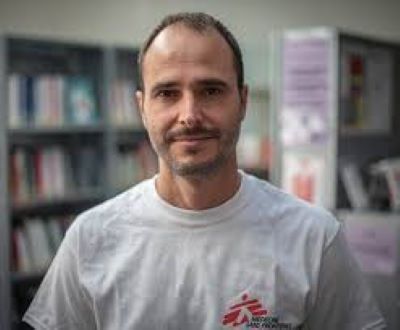As Maiduguri, in the Northeastern region of Nigeria, grapples with the aftermath of devastating flooding, compounded by ongoing malnutrition, disease outbreaks, and insecurity, the Médecins Sans Frontières (MSF) International President, Dr. Christos Christou, has called for immediate and intensified humanitarian support for the region.
In a statement released following his visit to Maiduguri, Dr. Christou highlighted the severe impact of the recent flooding on millions of people, noting that northern Nigeria has been enduring overlapping crises for years. “People in northern Nigeria have faced overwhelming levels of malnutrition, frequent outbreaks of vaccine-preventable diseases, and a lack of medical facilities and personnel – all of this worsened by continuous insecurity,” he said.
The floods, which struck at the end of the lean season, have dealt a harsh blow to farmers who had hoped for a successful harvest. “Now they must seek temporary shelter in displacement camps once again, rebuild their homes once again, and try to figure out what’s left of their farmland,” Christou remarked, underscoring the long-term impact on food security.
During his visit to MSF-supported hospitals and clinics in Maiduguri, Christou witnessed firsthand the dire situation in the healthcare system. The humanitarian organization is providing critical support in tackling malaria, delivering maternity services, and responding to a recent cholera outbreak. However, the backdrop of a catastrophic malnutrition crisis looms large.
“A Nigerian doctor who has worked with MSF for over eight years told me that this year is different. The number of malnourished children arriving at the hospital is not decreasing, and their condition is more severe than usual. This is a troubling sign,” said Christou.
The scale of the malnutrition crisis has worsened, with MSF reporting a 51% increase in admissions of severely malnourished children from January to August 2024, compared to the same period last year. Over the first eight months of this year, MSF treated more than 52,000 children with severe malnutrition in northern Nigeria, a life-threatening condition that is becoming increasingly common.
Additionally, Nigeria continues to experience recurrent outbreaks of vaccine-preventable diseases, such as measles, which is one of the leading causes of death among children. Between January and August, MSF treated over 12,500 cases of measles, nearly double the cases recorded in the same period in 2023. These outbreaks significantly heighten the mortality risk for children under five, particularly those who are unvaccinated and already vulnerable to acute malnutrition.
Compounding the crisis is malaria, with Nigeria bearing the highest malaria rates in the world, accounting for 27% of the global burden. “In most of our projects, malaria wards are overwhelmed, and children continue to die from a disease that can be prevented and treated,” Christou lamented.
The MSF president urged the global humanitarian community to act swiftly, emphasizing the need for enhanced lifesaving care for malnutrition, preventive healthcare programs, and increased vaccination coverage. He called on Nigerian authorities to sustain investment in routine immunization services and to launch catch-up vaccination campaigns for children under five.
“Thousands of families have just lost their crops. They already lack access to basic healthcare and have been struggling for survival for years. This is not the time to relent; this is not the time to stop. We must act now to provide the necessary support,” Christou concluded.
The situation in northern Nigeria remains critical, with ongoing health emergencies requiring urgent attention from both local and international actors.


